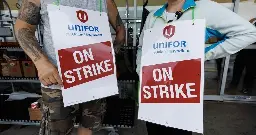 leftwingmememachine @lemmy.ca
leftwingmememachine @lemmy.ca I make memes that some people have called "shitty". I used to post on TikTok, too. And I'm on reddit, for now. (all under the same username)
Federal government commits to creation of national school food program
This announcement from the federal government came after significant pressure from the NDP:
- The BCNDP has implemented such a program and the newly elected Manitoba NDP is taking steps in that direction
- A month ago, the federal NDP was pushing for a national school lunch program in the next budget and had private talks with the Liberals about it
- 10 days ago, the federal NDP passed a motion to call on the gov to fund this program
- Advocacy groups put significant pressure on the government, too
I am happy to see this step towards ending child hunger and its great that the NDP is getting some nice little victories in the minority government.
Manitoba NDP pulls plug on Hydro CEO’s vision to pursue more private power projects | "...our position is that that new generation should be publicly owned"
Manitoba Hydro’s plan to ask the private sector to build new and costly electricity generation projects is being met with resistance from the NDP government, which wants the new infrastructure bankrol...

Convention resolutions are binding on the party, not MPs. In this case the resolution binds the party to take this position publicly - although MPs could theoretically vote any way they wish! https://pharmacare.vote has details
That's a good idea. I think I'll cut out torstar because they paywall so many articles
NDP is actually pretty decent, especially compared to the leading brands :)
Grocery store workforce stands to benefit from gains made by Unifor with Metro strike
Ontario NDP Leader Marit Stiles slammed the Ford government Friday for rolling out publicly-funded ads trumpeting its housing plan days after a scathing auditor-general report criticized its rezoning of Greenbelt lands.

At least in the browser, adding an exclamation mark redirects you to the community. Without the exclamation mark my phone thinks its an email address.
Would love if you could add [email protected], and perhaps combine it with canadapolitics under a "politics" category?
TBF, lots of other chains have a franchise model so it's easy to mix up
The firm is called municipal solutions: https://www.municipalsolutions.ca/our-team
The guy in charge of municipal solutions is John Mutton, who has been implicated in this scandal by the Toronto Star's investigative journalism: https://www.thestar.com/news/investigations/who-is-mr-x-after-scathing-ethics-probe-raises-questionable-conduct-of-unnamed-greenbelt-consultant/article_d34f22b7-2a19-5e0f-b0fb-cc786bdb4b2f.html
Most Starbucks locations aren't franchises and are directly owned by corporate
That is true, but I think its harder to get away with that here
None of the unionized Starbucks locations in Canada shut down after their union drive, although I get your concern, corporate can be sneaky!
Congratulations to Ajax Starbucks workers, who have successfully unionized!

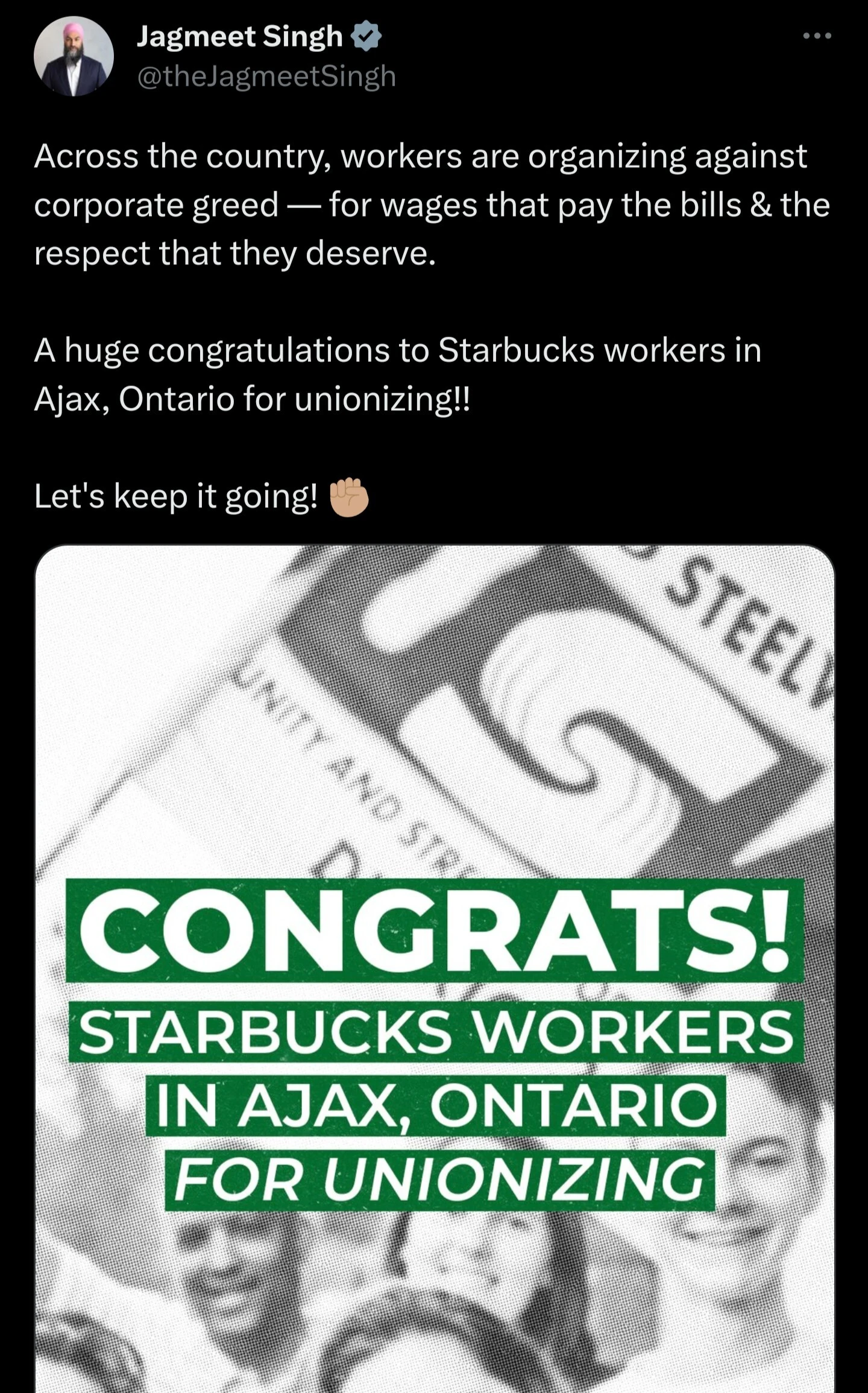
Details: https://usw.ca/ajax-starbucks-workers-vote-yes-for-union-united-steelworkers/
Do you work at Starbucks? Learn more about the union drive across Canada at https://www.betterworknow.ca/starbucks
Doesn't seem like enough to me, although he's had success with these small asks (he got the GST credit doubled a few times now)
I'm not sure, it's not in the press release.
They actually managed to pull it off! They got roughly 20% over the life of the agreement, a $4.50 increase for their highest earning employees (full time and senior part time workers, who make $20 per hour currently) and 3.20 for their lowest earning employees (who make about minimum wage). And the best part about it is that nearly half of that increase is in the first year, front loaded. An actually decent deal! More details below.
Metro grocery workers win major wage gains after month-long strike
TORONTO—Frontline grocery workers at Metro have ratified a historic new collective agreement, ending a month-long strike that started on July 29, 2023.

> Full-time and senior part-time workers will receive an unprecedented pay increase of $2.00 per hour within months. With all workers, full and part-time, receiving an immediate, upfront wage hike of $1.50/hour.
> The new deal contains an overall wage improvement of $4.50 per hour for full-time and senior part-time workers and $3.20 for non-senior part-time workers, over the duration of the contract. New hourly rates will reach $25.05/hour for full-time clerks and significantly higher wages for part-time clerks —improvements that some frontline grocery workers describe as “life-changing.”
Back-of-the envelope math puts this at over a 20% raise over the lifetime of the agreement, outpacing inflation.
This is a very good deal, huge for the sector and hopefully precedent-setting. Congratulations to Unifor members at Metro. Strikes are hard.
Some credit as well should go to the union leadership, who immediately backed the workers when they rejected their first agreement and instead opted to strike
As I've discussed earlier in on Reddit, Unifor has recently elected new leadership who want to take the union in a more militant direction:
https://www.reddit.com/r/ndp/comments/wl54ld/lana_payne_a_former_journalist_who_built_her/
Fred Hahn, president of CUPE Ontario, appears to endorse a no vote on the OSSTF (high school teachers) tentative agreement that would trade the right to strike for arbitration

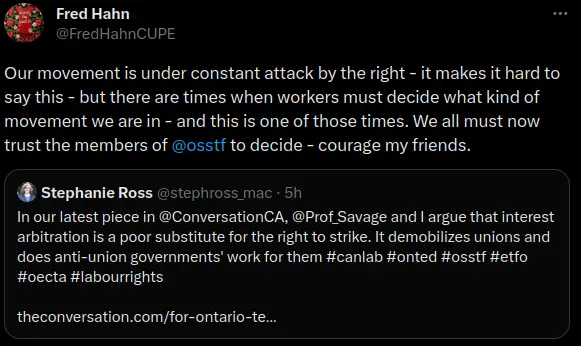
It is extremely rare that a major labour leader like Fred would weigh in on a tentative agreement made by another union. It is even more rare that he appears to be advocating for rejection. Tentative agreements are rarely rejected by union members in Canada, although there has been a slight uptick recently.
Context: The Ontario Secondary School Teachers’ Federation (OSSTF) has reached an agreement with the Ontario government to use binding interest arbitration, avoiding the potential for a strike. Interest arbitration is typically used for essential workers, such as firefighters or nurses, that can't legally strike. It is strange that a union with the right to strike, like high school teachers, are proposing this. While arbitration has been seen as a promising alternative, due to recent positive arbitration outcomes for nurses in Ontario, many in the labour movement are wary. Critics argue that relying on arbitration can weaken the union, deprive members of their voting power, and potentially lead to more bargaining impasses. It can also make unions dependent on the success of other unions in setting good wage standards. Additionally, choosing arbitration might inadvertently undermine the bargaining position of other unions. The choice by OSSTF is especially puzzling to some given the current favorable conditions for unions to achieve significant gains at the bargaining table.
Article with lots of information: https://theconversation.com/for-ontario-teachers-arbitration-is-no-substitute-for-the-right-to-strike-212432
Source tweet: https://twitter.com/FredHahnCUPE/status/1696731147365913071
Trading the right to strike for binding interest arbitration is a minefield for unions.

This meme was based on a true story
More than a million people do that every election, we just need a million more :)
I take credit for a few of those votes - I knock on doors to talk to folks about healthcare and the NDP every campaign!
Canada's unions say that children deserve the freedom to be themselves
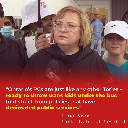
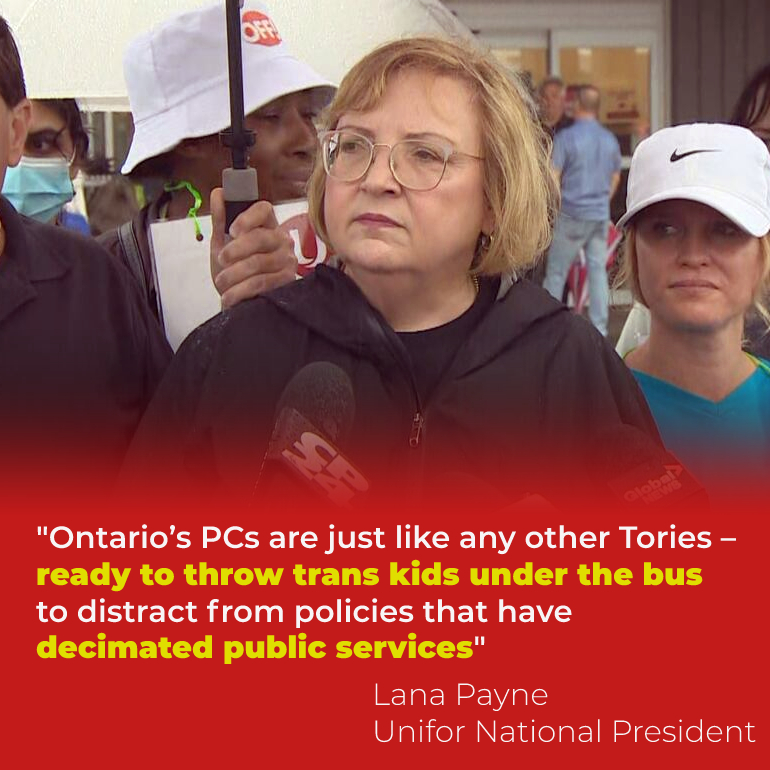
Context: Unifor 'appalled' following Ontario Education Minister's comments on child pronouns
https://toronto.citynews.ca/2023/08/29/stephen-lecce-ontario-child-pronouns-schools-canada-unifor/
More solid labour journalism from The Breach, they and PressProgress are the few media outlets that have reporters assigned specifically to the labour beat.
Good work from the Ontario NDP on this one!
Ontario NDP wins step in the right direction with ban of celebrity gambling ads

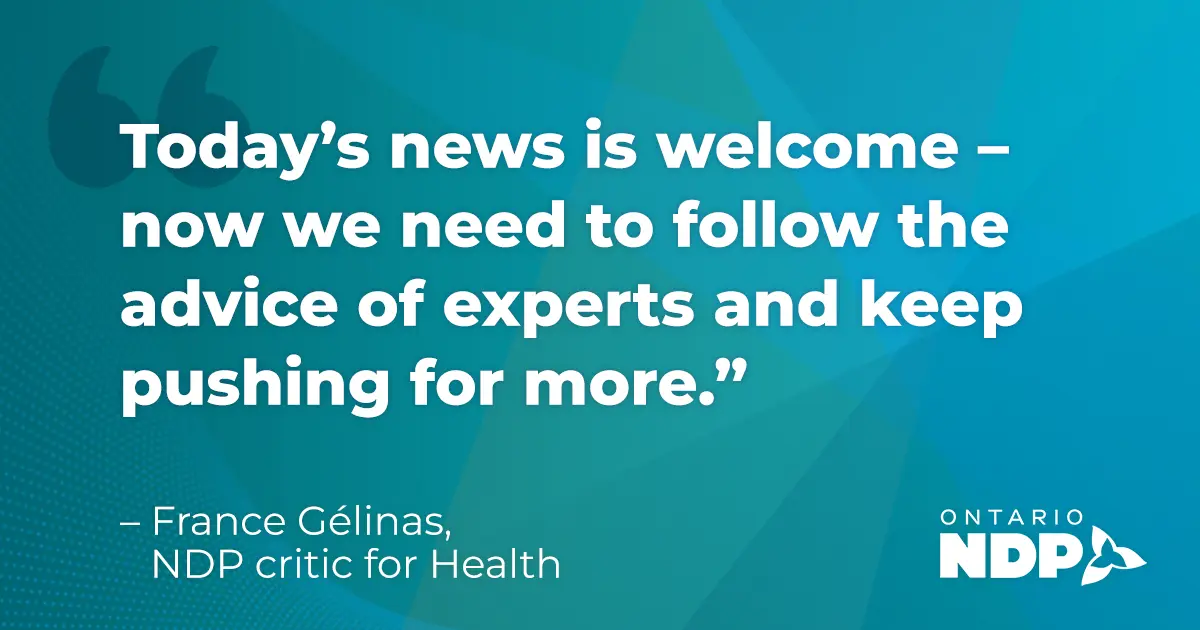
QUEEN’S PARK – The Official Opposition Ontario NDP welcomes news that the Alcohol and Gaming Commission of Ontario (AGCO) has decided to ban gambling commercials that feature celebrities and athletes, which will help protect both children and adults from the explosion of unregulated advertising content under Ford’s Conservatives.
In June 2023, NDP MPPs tabled a PMB with their solution for a ban on iGaming advertisements. Prohibiting celebrity and athlete involvement is a welcome first step.
Quotes
> “Health professionals have been sounding the alarm about the impact that online gambling advertising is having on people, especially on youth. Today’s news is welcome – now we need to follow the advice of experts and keep pushing for more.”
-MPP France Gélinas (Nickel Belt), NDP critic for Health
> “We’ve seen an explosion in advertisements for online gambling ads in the past few years, which puts people with gambling addictions and Ontario youth at risk. I’m pleased to see the AGCO’s recognition that more needs to be done, and hope Ford immediately calls our PMB to second reading debate. Let’s keep pushing and get this passed”.
-MPP Lisa Gretzky (Windsor West), NDP critic for Mental Health and Addictions
>“For too many years Ontarians lacked effective consumer protections when it came to online gambling. Today’s action from the AGCO is finally a positive step in the right direction – and a sign that our bill with expanded protections is needed.”
-MPP Tom Rakocevic (Humber River – Black Creek), NDP critic for Consumer Protection
> “I’m happy to see the AGCO agree with us about the impacts that gambling ads can have on our children and youth, and welcome today’s news. The evidence has been clear for years and it’s never too late to do the right thing. I’m excited to see our PMB become a reality – it’s the clear next step.”
-MPP Monique Taylor (Hamilton Mountain), NDP critic for Children, Community and Social Services
I was trying to respectfully disengage!
I still disagree with you but I don't think either of us are going to convince each other. I appreciate you sharing your perspective, I wasn't around back in the Usenet days and it's cool to hear about it and how you were involved.
I disagree that users really have any say in the direction of the platform. Users aren't clambering for ads or for crappy Amazon products, and so I don't think it's the competing interests of users that drive these changes. I see it as more of a conflict between users and owners.
- Platform begins with small user base
- Investors pour in capital to support and encourage the growth of the user base. At this stage the platform runs at a massive loss. This is when times are good for users.
- Investors, now with substantial influence, seek a return on investment by encouraging new anti-features on the platform.
Maybe this sounds like the same thing, but there are different solutions. If I understand you right, your solution to this problem is to restrict growth, which could allow for a more unified community that could push back against these changes. I would argue to change the incentives, change the governance model, so that the platform is publicly administered or administered by a non-profit or cooperative that is accountable to users, not shareholders. See how this very website (lemmy.ca) is being incorporated as a non-profit. It's pretty neat!
Corporate investors to blame for housing crisis, says NDP MP Daniel Blaikie | 'Canadians are getting kicked in the teeth'
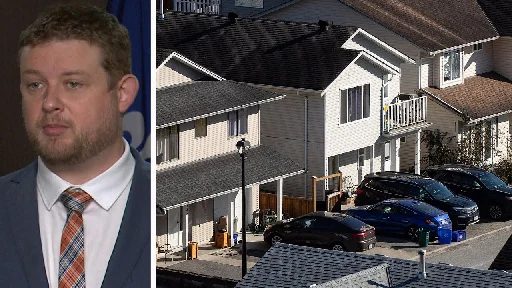
YouTube Video
Click to view this content.
Transcript: Canadians that are trying to either buy their own home, rent an affordable home, or in the case of Peggy, trying to stay in an affordable home, are all getting kicked in the teeth. They're facing these challenges because the market hasn't been set up for them to compete with families in similar situations with similar incomes. Instead, Canadians wanting to find their way into a home are having to compete with deep-pocketed corporate investors. This is what's structurally wrong with the Canadian housing market.
There are people out there that'll tell you different things about that. The Liberals so far have only been willing to take action concerning foreign buyers, but we know they only represent about five percent of the market. Conservatives will argue that it's government spending, it's the Bank of Canada, or anything else that diverts attention from the real problem. The genuine issue is the massive corporate profits made by turning what should be a market about people securing a family home into an asset class for profit generation.
This isn't a phenomenon that occurred by accident. If you delve into the history of real estate investment trusts (REITs), you'll find that they began their rapid ascent in 1996. Coincidentally, this was right after the Liberals canceled the national housing strategy. The trend has been growing ever since. It's myopic to focus solely on the last two years and the housing market fluctuations during this exceptional period. The trend of Canadians being pushed out of affordable homes started much earlier than that, and it's a pattern seen across both Liberal and Conservative governments.
These administrations have been lacking in supply-side solutions. Additionally, they've cultivated a tax culture that rewards companies for buying affordable buildings, ousting tenants, and then hiking rents. Through the tax code, if you're part of a REIT, you're exempted from paying corporate tax on your profits, as long as you distribute the income to individual investors. Normally, a company would first settle corporate income tax on its earnings and then distribute its dividends from the remaining amount.
Another way the housing market has been undermined is by both Liberal and Conservative governments not renewing operating grants linked to many affordable buildings, be it co-op housing or non-profit housing. Federal operating money made those units more than just affordable – they were rent-geared to income, which is the gold standard for housing. It ensures tenants don't end up paying an exorbitant portion of their earnings on rent. As these 40 or 50-year mortgages began to expire towards the end of the Harper government's term, the promise of not renewing these operating grants was made. While the Liberals ran on a commitment to sustain them, they backtracked.
Consequently, buildings across the country that had federal funding, ensuring they could offer affordable rents to tenants, were told by both Conservative and Liberal governments that there would be no funding renewal. This meant they either had to raise the rents or sell their buildings. This situation made them ripe targets for REITs, which had the financial means to outbid non-profit associations experienced in housing.
This is a long-brewing problem, and while the pandemic exacerbated the situation, attributing the crisis solely to pandemic-induced government spending is a mistake. The housing crisis has been building up for ages and has now reached a critical point. We must take actions to stabilize the market and salvage the affordable units we still have. Experts reveal that for every new affordable housing unit we establish in Canada today, we're losing 15. This rate is unsustainable. The decrease in supply, combined with the detrimental role of REITs and other corporate landlords, is at the crux of the issue.
We need proactive government intervention to address and resolve this problem, ensuring Canadians have access to affordable housing. This is why we're announcing specific measures today. Jenny has already mentioned imposing a moratorium on REITs and corporate landlords from purchasing affordable buildings. We've also discussed establishing a fund so that non-profit housing experts can acquire and manage these buildings appropriately. Another crucial step is eliminating the preferential tax treatment for REITs, which only makes them a more enticing investment option, drawing more capital into a system that's undermining our housing market.
We shouldn't be incentivizing investors to exploit a mechanism that makes housing less accessible for Canadians. Our package of solutions aims to conserve affordable units, create more of them, and stop rewarding major investors who profit by forcing Canadians out of homes they can afford, leaving them to fend for themselves.
Meet Fellow New Democrats and Debate Policy at Convention 2023!
The Federal NDP will be having its party convention in Hamilton from October 13th to 15th, 2023. There, the federal executive will be elected, the delegates will decide whether or not to keep the party leader, guest speakers will do their thing, and delegates will debate policy and the general direction of the party.
How do I become a delegate to convention? Here's an unofficial guide I got in my email on how to be a delegate (it's slightly different for each province).
How do I amend the NDP constitution/amend the policy book/or make the NDP take a stance on a particular issue?
The deadline to submit policy proposals has passed. If you're someone who has proposed policy, please post it below!
Cost, Deadlines, and Other Details
Link to official convention details: https://www.ndp.ca/convention
The delegate fee for youth is $99, if you're unwaged it is $149, and the regular fee (as long as you register before the 25th of August) is $349.
Marit Stiles: Greenbelt report paints picture of corruption in the Conservative government
QUEEN’S PARK – Ontario NDP Leader Marit Stiles called for the immediate resignation of the Minister of Municipal Affairs and Housing after the Auditor General’s special report showed disturbing evidence of corruption, collusion, and fiscal irresponsibility. This report comes after requests from Stil...
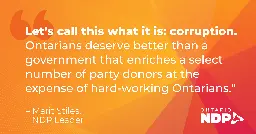
How to become a billionaire in Ontario in four easy steps


This really happened! https://www.cbc.ca/news/canada/toronto/ontario-auditor-general-greenbelt-report-1.6930390
Corruption: Ontario government's Greenbelt land swap influenced by well-connected developers, AG finds
The Ford government removed approximately 2,995 hectares of land from the Greenbelt in December — while adding more land elsewhere — to build 50,000 homes. The government said the changes were part of its plan to build 1.5 million new homes in the next decade to ease Ontario's housing crisis.
As CBC Toronto first reported, land registry and corporate records showed several well-established developers were among the owners of the land that was removed from the Greenbelt. Some of those developers have made financial donations to the Progressive Conservative Party of Ontario or its politicians.
The CBC analysis also revealed several of the properties were purchased after the Ford government came to power in 2018 while they were fully or partially off-limits to development.
Lysyk agreed to look into this decision in January following a request from the leaders of all three opposition parties, who raised concerns about whether developers who benefitted from the Greenbelt decision knew about it in advance.
Instead of finding they were tipped off, Lysyk found it was the developers themselves who, in many cases, successfully lobbied to have specific sites they owned opened up for housing development.
Lysyk's audit found that 12 of the 15 parcels of land ultimately chosen for removal came from specific requests from developers or their representatives.
"Many of these individuals had advocated for the removal in emails and in-person meetings within a few months prior to their removal," according to the report. "For example, one lawyer representing three housing developers emailed the Chief of Staff on Sept. 27 and 29, 2022, providing site specific details for the land they sought to develop."
According to a timeline of key events, two prominent housing developers approached Clark's chief of staff in Sept. 2022 at a building industry event, and provided him with packages containing information on two sites in the Greenbelt — the Duffins Rouge Agricultural Preserve in Pickering and a site in the Township of King that was purchased that very month for $80 million.
Shortly after the September event, one of the developers provided Clark's chief of staff with information related to three other sites.
"About 92 per cent of the land that was ultimately removed from the Greenbelt was requested to be removed by the developers the chief of staff dined with at [the event]," the report says.


